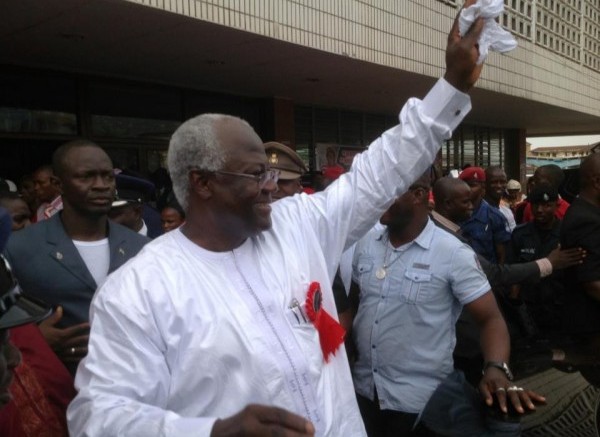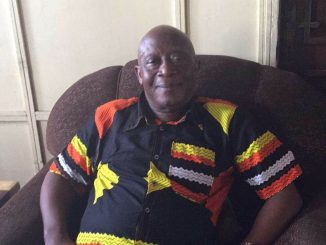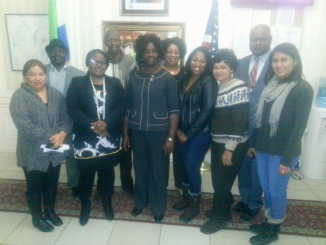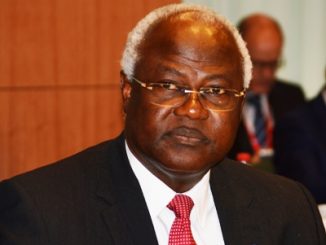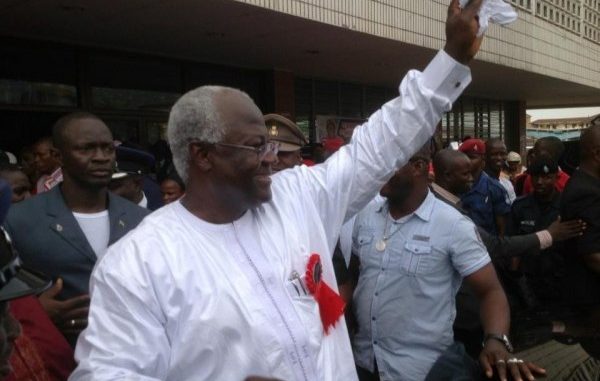
The African Development Bank (AfDB) recognises Sierra Leone as a success story among states emerging from conflict. According to the AfDB Resident Representative in Sierra Leone, Yero Baldeh, the small West African country has made remarkable progress the last 13 years in moving from national reconstruction to sustainable development, conducting three successful elections and managing peaceful political transitions.
Sierra Leone, he further said, has also been active through the G7+ in piloting the New Deal for Engagement in Fragile States principles and providing peer support to other fragile states, in addition to being an active member of the UN Peacebuilding Commission.
“Therefore, it is not surprising that Sierra Leone was chosen as the first fragile state country to do a Development Effectiveness Review (DER) on,” said Baldeh.
The DER on Sierra Leone was officially launched on December 9th at the Ministry of Finance and Economic Development conference room. According to Baldeh, this year’s DER – which are on Sierra Leone and Ethiopia – shows the practical results of AfDB’s commitment to working more effectively in countries in fragile situations.
The Bank has been a close partner for Sierra Leone through its transition process, providing $ 106 million in debt relief, supporting the balance of payments and contributed $350 million over 2005-2014.
“In the case of Sierra Leone, the DER assesses our contribution to Sierra Leone development progressand complements the Bank Group’s Annual Development Effectiveness Review, which reports annually on the performance of the Bank,” said Baldeh, adding that the DER presents the Bank’s operations and approaches to development in an accessible way and also helps ensure that good practices are shared more broadly.
The DERof the Bank’s support to Sierra Leone reviews both Sierra Leone’s progress in managing the transition away from conflict and the lessons the Bank has learned on delivering support effectively in a fragile environment in the country.
It presents data from the Bank’s Results Measurement Framework from 2005 to 2014 and provides examples of its operations at work.
However, despite Sierra Leone’s remarkable progress the Bank notes that serious drivers of fragility are still at work, and they have been compounded by the Ebola crisis and the falling iron ore prices.
It also notes that some major challenges lie ahead if Sierra Leone is to return to its path of strong growth and post-conflict recovery.
Translating the country’s mineral wealth into benefits for the population at large will require greater transparency in the minerals sector and in public resource management, to ensure that revenues from mining are collected and invested in the public interest.
Moving forward, the Bank recommends that Sierra Leone diversifies its economy and reduce its reliance on mineral exports, with policies and institutions that support a strong private sector, including more productive farming and agro-enterprises. It also urged the government to invest more on infrastructure to continue narrowing the infrastructure gaps and enable the population to benefit more from economic growth.
“We see economic diversification and infrastructure development as the core foundations that will enable Sierra Leone to achieve its vision of middle-income status,”Baldeh said, while assuring that the Bank stands ready to support Sierra Leone in achieving these objectives.
He continued: “We will continue to channel additional resources to the country through the Transition Support Facility. We will also support the Government in identifying additional sources of development finance, including by using Bank resources to leverage more investment from the private sector, building capacity to actively engage in bankable PPPs, and helping the Government improve revenue mobilisation, particularly from the extractives sector.”
PRIME TIMES

